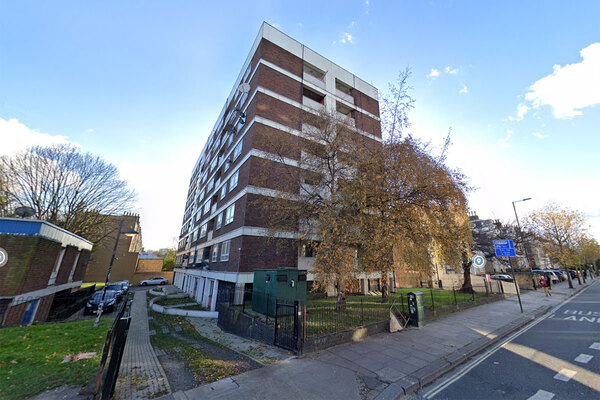You are viewing 1 of your 1 free articles
Social housing contractor ordered to pay former employee nearly £1m in disability discrimination case
Mears Group has been ordered to pay a former manager nearly £1m in compensation after she successfully sued the company for disability discrimination.
Following an employment tribunal, a judge ruled that the firm had discriminated against the manager – referred to as P Austin – after she claimed that she was passed over for a role and later dismissed after sustaining life-changing spinal injuries.
The ruling found both that there was a failure to give Ms Austin the opportunity to apply for a new role at the repairs contractor and that her subsequent dismissal amounted to disability discrimination. The judge also concluded that her dismissal was an “act of victimisation”.
Mears holds many large contracts with social landlords.
The company has been ordered to pay Ms Austin £964,465 in total. This is made up of £31,980 in total for injury to feelings and £412,712 for future financial loss.
The remainder is made up of financial loss up to September 2022, interest and an Advisory, Conciliation and Arbitration Service uplift of £50,000.
According to the judgment, Mears conceded that the dismissal was “unfair”. However, the firm is appealing parts of the ruling.
The ruling stated that Ms Austin started at the firm in 2007 as bid manager. She was later promoted to senior bid manager, and then head of bid management – North. According to the judgment, the claimant was “well thought of”.
In 2015, however, she suffered spinal cord injuries in an accident that left her disabled.
The accident affected all four of her limbs to some extent, which meant Ms Austin began to use a wheelchair. She spent four months in hospital recovering.
Ms Austin came back to work on reduced hours and working from home in February 2017.
According to the judgment, Ms Austin felt that Mears was “unreasonably slow" to action the things that would accommodate her disability.
Although there was no formal determination on it, the judgment outlined several incidents in which Mears is said to have failed to make access adjustments for Ms Austin. This included a training session and meetings.
In late 2017, Ms Austin attended a meeting about a proposed staffing restructure at Mears, which took place on the first floor. The judgment said that although a staff member had attempted to arrange a parking space, it was unavailable when Ms Austin arrived.
She also said that she was not given the access code to the lift, which meant that any time she wanted access to that area she would need to ask to be let in. Ms Austin was told she could not use the lift alone.
The judgment said that even though Ms Austin arrived at the site in good time, she arrived at the meeting late and was “very upset”.
Ms Austin was kept on at Mears, but her job title changed from head of bid management – North to bid manager.
In January 2018, Ms Austin’s mother was given a terminal cancer diagnosis and she passed away in August that year.
From April 2018 onwards, Ms Austin was absent from work for mental health reasons.
Around the same time, Mears looked to recruit a new head of bid management.
In February 2019, someone from a firm recently acquired by Mears was appointed to the role.
The judgment said that Ms Austin was not given the opportunity to apply for it, and the judge concluded that this was “unfavourable treatment” and disability discrimination.
Ms Austin was dismissed in March 2019 without returning from her absence.
The judgment concluded that she was dismissed because a staff member no longer wanted to work with her because of comments she made at a previous meeting.
Ms Austin had raised concerns about the fact that she had not been given the opportunity to apply for the head of bid management role and that Mears had failed to make “reasonable adjustments” for her since she suffered her injury.
She also made clear that she would require reasonable adjustments to be made for her in the future.
The judge concluded that the dismissal was unfavourable treatment and disability discrimination.
A Mears spokesperson said: “We take our approach to fairness and inclusion very seriously at Mears and have a strong track record.
“This case goes back to 2019. We do plan to appeal parts of the ruling, where we believe the outcome is not representative of the facts.”
Sign up for our legal and regulation newsletter
Already have an account? Click here to manage your newsletters












